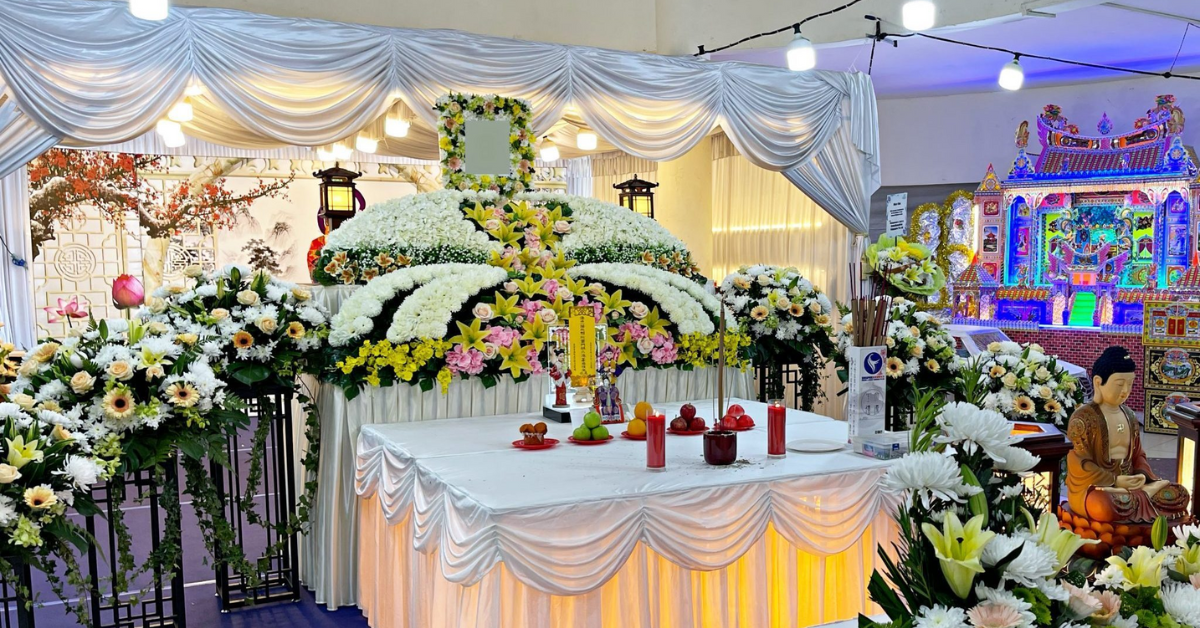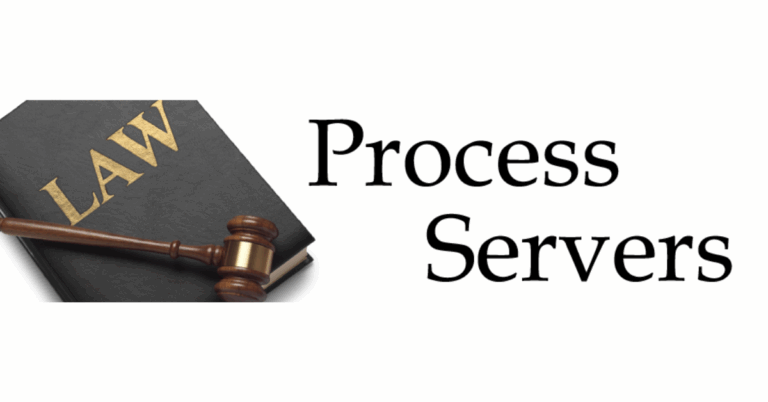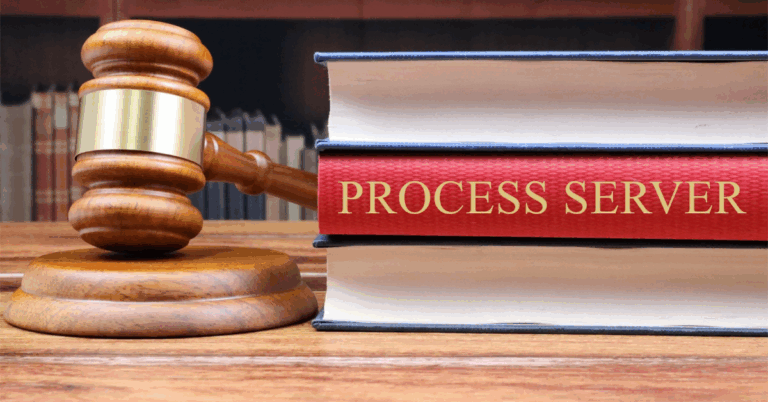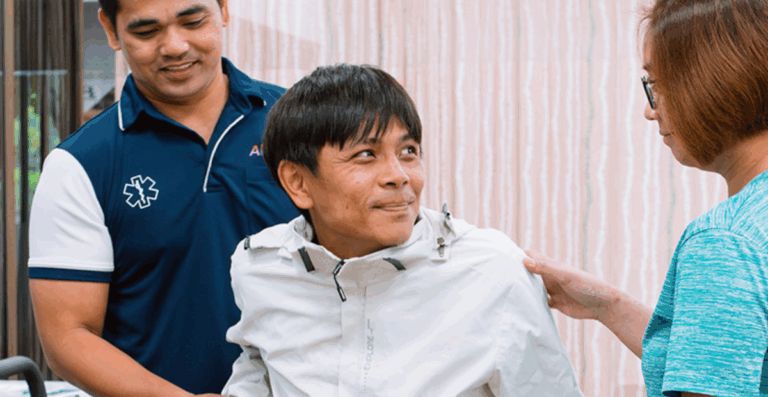Buddhist Funeral Services Singapore: A Complete Overview for Families in Mourning
When a loved one passes away, it is natural for families to seek a dignified and spiritually meaningful way to say goodbye. For many in Singapore, Buddhist funeral traditions provide comfort, guidance, and a framework for helping the soul transition peacefully to its next life. Buddhist Funeral Services Singapore are rooted in centuries-old rituals that emphasize compassion, impermanence, and reverence. This guide offers a comprehensive overview of how Buddhist funerals are conducted in Singapore, what families can expect during the process, and how to plan a ceremony that honors both tradition and personal preference.
The Significance of Buddhist Funerals
In Buddhism, death is not an ending but a passage to the next phase of existence. The soul continues its journey through rebirth, and the funeral ceremony is designed to support this transition. Through chanting, offerings, and prayers, families accumulate merit for the deceased, helping them achieve a more favorable rebirth. Buddhist Funeral Services Singapore reflect these values through structured rituals and symbolic acts that create a peaceful environment for mourning and reflection.
Core Elements of a Buddhist Funeral
A typical Buddhist funeral in Singapore includes several key components. First is the altar setup, which features a photograph of the deceased, incense, flowers, candles, and a statue or image of the Buddha. Chanting of Buddhist sutras by monks or trained practitioners is an essential part of the ceremony. These chants help guide the spirit, generate positive karma, and calm the minds of grieving family members. Offerings are placed on the altar, including fruits, water, and vegetarian food. The casket is placed in front of the altar and may be open for viewing during the wake. Guests bow before the altar and offer incense as a sign of respect. A funeral procession and cremation or burial follow the conclusion of the wake.
Duration of the Wake
In Singapore, Buddhist funerals typically last for 3, 5, or 7 days. These durations follow the custom of using odd numbers for religious or spiritual events. The wake period allows family, friends, and members of the community to visit, pay their respects, and participate in chanting sessions. It also gives time for extended family members to travel and gather. Some families may choose shorter wakes for practical or financial reasons, while others prefer a longer wake for a more extended period of mourning and reflection.
Venue Options for Buddhist Funeral Services Singapore
There are several venue options available in Singapore. One of the most common is the HDB void deck. This location is accessible, familiar, and cost-effective, especially for larger families. Funeral parlours offer more privacy and comfort, with air-conditioned halls and full service support. Some Buddhist temples also provide space for wakes and ceremonies, particularly if the family is affiliated with the temple. Private homes can be used for smaller, intimate services. Each venue can be set up with Buddhist decorations, tentage, lighting, and seating arrangements tailored to the family’s needs.
Components of a Funeral Package
Buddhist Funeral Services Singapore are often provided in packages that include essential items and services. A standard package typically includes the casket, embalming and dressing, altar setup with Buddhist decor, monk chanting sessions, tentage and furniture setup, photo enlargement and frame, lighting and fans, hearse transportation, and cremation coordination. Families can choose from basic, mid-range, or premium packages based on their preferences and budget. Some packages also include joss paper offerings, customized flower arrangements, prayer booklets, and post-funeral services such as ash collection and columbarium booking.
Cost of Buddhist Funeral Services Singapore
Funeral costs vary depending on duration, venue, and level of service. Basic funeral packages start at approximately S$4,000 to S$5,000 and include core services such as casket, chanting, and cremation coordination. Mid-tier packages range from S$6,000 to S$8,000, offering more elaborate setups, longer chanting sessions, and improved materials. Premium packages start from S$10,000 and may include air-conditioned parlour use, custom-designed altars, luxury caskets, extended wakes, floral themes, and full post-funeral arrangements. Funeral providers in Singapore generally offer transparent pricing and are able to adjust packages based on the family’s financial comfort.
What to Expect During the Ceremony
The wake usually begins with an encoffining ceremony, where the body is respectfully bathed, dressed, and placed into the casket. Chanting is performed daily, either by monks or trained practitioners. Guests are welcome to attend the wake and participate by offering incense, bowing, and sitting in silent reflection. On the final day, a closing chant is performed, followed by a funeral procession and transportation to the crematorium or cemetery. Cremation is the preferred choice in Singapore due to space limitations and compatibility with Buddhist teachings. The ashes are collected after cremation and may be placed in a columbarium or scattered at sea, depending on the family’s preference.
Post-Funeral Rites and Customs
After the funeral, families often continue with additional Buddhist rituals. One of the most significant is the 49-day prayer period. It is believed that the soul lingers for 49 days before rebirth, and weekly prayers during this time help guide it to a better next life. These sessions can be held at home or in a temple and may be arranged through the funeral provider. Families may also conduct anniversary rituals, install memorial tablets, or hold annual remembrance services. Columbarium placement is another important decision, with options including government-managed facilities or private temples.
Etiquette for Attendees
Guests at a Buddhist funeral should wear conservative, dark-coloured clothing. White or black are considered appropriate. Red, bright colours, or festive attire should be avoided. Upon arrival, guests usually bow three times at the altar and offer a stick of incense. They may also present a condolence gift in a white envelope, known as baijin, which is a traditional gesture of sympathy and support. It is important to remain silent or speak softly during chanting, and to follow the lead of the family and officiants. Photography should be discreet or avoided unless permitted.
Personalisation and Modern Adaptations
Buddhist Funeral Services Singapore can be personalised to reflect the values and life of the deceased. Modern touches such as tribute videos, slideshow presentations, printed memorial cards, or live streaming for distant relatives are becoming more common. Families may choose different colour schemes for flowers, alternative casket designs, or custom altar themes. Reputable providers will help integrate these choices while ensuring all religious practices are followed appropriately. This allows families to celebrate the life of their loved one in a way that feels meaningful and respectful.
Choosing a Funeral Provider
Selecting the right funeral provider is essential. Families should look for a company with experience in Buddhist rituals and familiarity with local customs. The provider should offer clear pricing, compassionate staff, and 24/7 support. They should be able to explain the various rites and coordinate logistics with temples, crematoriums, or columbarium facilities. A good provider understands the emotional and spiritual importance of the occasion and is able to support the family every step of the way.
Frequently Asked Questions
How many days does a Buddhist funeral last in Singapore?
Typically 3, 5, or 7 days. The number is often chosen based on religious beliefs or practical considerations.
Is cremation or burial more common in Singapore?
Cremation is more common due to space constraints and religious preference.
What is the purpose of monk chanting at a funeral?
Chanting helps guide the soul of the deceased, accumulates merit, and brings peace to the family.
Are guests allowed to participate in the rituals?
Yes. Guests may bow, offer incense, and join in silent reflection or listen to the chanting.
Can the funeral be customised?
Yes. Families can choose floral themes, multimedia elements, casket types, and duration to suit their needs.
What happens after cremation?
Ashes may be placed in a columbarium, scattered at sea, or kept in an urn. Post-funeral prayers may be conducted up to 49 days after death.
How much does a Buddhist funeral typically cost?
Costs range from S$4,000 to over S$10,000 depending on the package and services selected.
Do I need to book the cremation or columbarium myself?
Funeral providers usually handle these arrangements as part of the package.
Conclusion
Buddhist Funeral Services Singapore provide families with a deeply respectful and spiritually guided way to honor their loved ones. From chanting and altar rituals to cremation and aftercare, every element is designed to support the soul’s journey and offer comfort to those left behind. With options to fit different budgets and beliefs, and the ability to personalise ceremonies, families in Singapore can find the right balance of tradition and practicality. Choosing an experienced, compassionate provider ensures that this important life event is handled with dignity, professionalism, and care.







